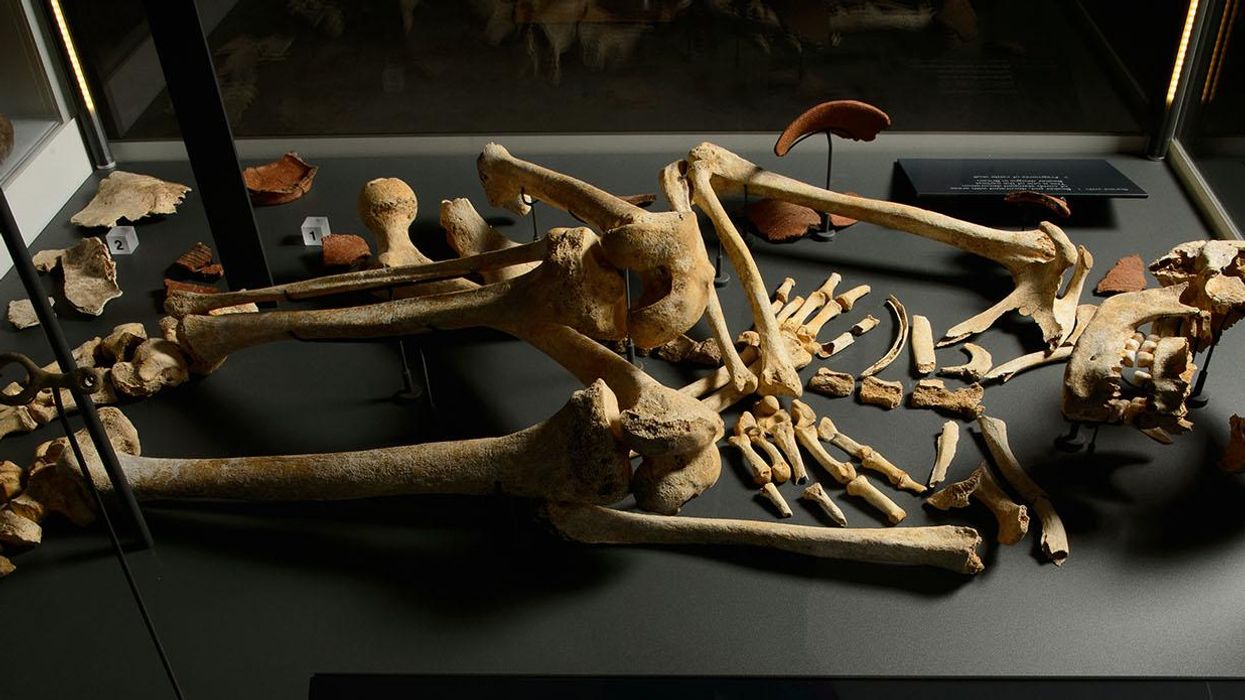News
Louis Dor
Apr 29, 2016

Picture: LEON NEAL/AFP/Getty Images
Half of the men in Western Europe are the desendants of a Bronze Age king, a new study has claimed.
Based on genetic research into the Y chromosome of 1,200 men, reporting to be the largest ever of its kind, the study was published this week in the journal Nature Genetics.
The research by the Wellcome Trust Sanger Institute showed that Y chromosomes, which are only passed from father to son, when constructed in a tree of 1,200 were all related to each other, dating back to a single man who lived approximately 190,000 years ago.
Dr Chris Tyler-Smith, of the institute, said in a statement:
The best explanation is that they may have resulted from advances in technology that could be controlled by small groups of men. Wheeled transport, metal working and organised warfare are all candidate explanations that can now be investigated further.
In addition, many branches of this tree originated from the same point, suggesting that male populations exploded at different points in history among select groups.
Dr Yali Xue, lead author from the institute, said:
This pattern tells us that there was an explosive increase in the number of men carrying a certain type of Y chromosome, within just a few generations. We only observed this phenomenon in males, and only in a few groups of men.
The earliest explosive increases of male numbers occurred 50,000–55,000 years ago, across Asia and Europe, and 15,000 years ago in the Americas.
There were also later expansions in sub-Saharan Africa, Western Europe, South Asia and East Asia, intermittently between 4,000 and 8,000 years ago.
So, although we are all related, some of us are more closely related that we might have previously thought.
More: Kim Jong-un and Iron Age humans shared a love of Swiss cheese, new research shows
Top 100
The Conversation (0)













Donald Trump explodes at 'obnoxious' reporter